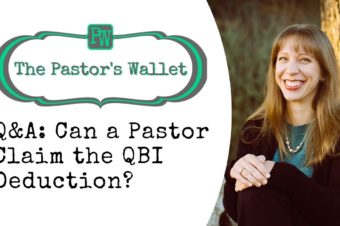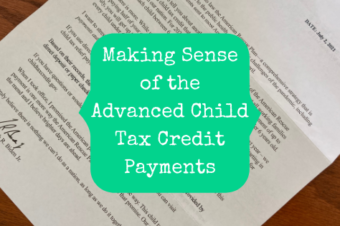A lot is said about the tax-deductibility of charitable contributions. After all, that is why your church went through the trouble of gaining 501(c)(3) status with the IRS. So that donors could get tax breaks.
Not everyone gets a tax break for their charitable giving, though. It all depends on how you file your taxes.
Itemizing for Charitable Deductions
Usually, in order to get a deduction for your giving, you have to do something called itemizing deductions. It means that you list out all of the different things you are eligible to deduct and add them up. You have to fill out an additional tax form and track your giving, state and local taxes, medical expenses, and things like that. The other option is to take a standard deduction, which is a lot easier.
For 2020, the standard deduction for a single person is $12,400, for a head of household it is $18,650, and for a married couple it is $24,800. That means that as a married couple, if your state and local taxes, donations, etc. don’t add up to at least $24,800, you would take the standard deduction instead of itemizing deductions. And when you take the standard deduction, you get no tax benefits for your charitable giving.
2020 Charitable Deductions Under the CARES Act
Until 2020 and the CARES Act. The CARES Act that was passed in March at the start of the coronavirus pandemic allows for a $300 above-the-line charitable deduction for 2020. Above-the-line simply means that it is taken off before the regular standard deduction. That means that people who choose the standard deduction instead of itemizing deductions can get a tax benefit for their giving. Below is a picture of Form 1040 showing where to take the deduction.

What about if you itemize your deductions? Can you still take the special CARES Act deduction? No. Because you’re already taking it on Schedule A when you itemize. This provision doesn’t punish you in any way, it just helps out those who claim the standard deduction.
Charitable Deductions in 2021
The CARES Act provision was only for the 2020 tax year. In December, another stimulus bill was passed that contains the same provision for 2021 and even makes it better. You see, the 2020 $300 deduction is always $300, whether you file as a single person or as a married couple. The deduction for the 2021 tax year removes the “marriage penalty” and allows a $600 deduction for joint filers.
To summarize, on your 2020 tax return, you can deduct up to $300 in charitable contributions, regardless of your filing status, even if you claim the standard deduction. And on your 2021 tax return, single filers will be able to deduct up to $300 in the same way and married filers will be able to deduct up to $600. That’s great news, especially now that 86% of people are claiming the standard deduction!








